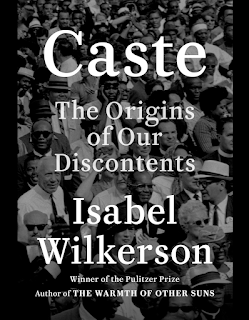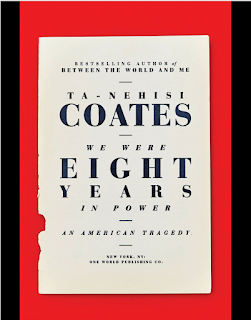Since I was a little boy, I've always had an interest in American history. I grew up in an area that was the site of a couple important battles in America's Revolutionary War. And while many of my peers were reading "Dick and Jane," I was reading old cast-iron signs with raised lettering selling us a version of American history that was all stars and stripes and fifes and drums.
Along the way to my teen years, three things happened to me. One: An English teacher took me under her lissome wing and introduced me to Afro-American literature--everyone from Baldwin to Ellison to Wright to Hughes to Hurston.
Two: I became best friends with my current closest friend, who lived the Black experience I was only reading about.
And Three: I was able to make an intellectual connection (no matter how spurious) between the living of many abused children and the living of many black people. To be reductive about this, both were guilty and neither knew when they were going to get beaten, only that they would.
Since those technicolor years of my mother's withering blows, my interest in American history has not abated one bit. Ask either of my daughters how annoying I am when I stop the car to read an old highway sign that talks about some skunk being shot on this site by Davey Crocket when he was taking a break from killing indigenous peoples.
I say American history, not African-American history because the two topics are really inseparable if you are approaching them with honesty. Honesty is as endangered today as moderation.
Just as we used to say behind every great man was a great woman, at every stage of American accomplishment were Black people, usually sweating the bullets, doing the work, getting the punishment and getting none of the accolades--or even the benefit of the tax-dollars collected from them.
The wealth America wrested from the world was built, probably less on "American Exceptionalism," than on "Black Exploitation." I don't really know how you can, honestly, take the two apart.
In any event, we are living now, though no one seems to know it, amid a flowering of writing of and by and about African-Americans. I read as much of this as I can, and I thought I'd list some recommendations if you want to remove yourself from the Rottonhouse of Rittenhouse Amerika.
Some things I have read in the past 18 months. That you'd be well-served reading as well.
I intended to write little capsules. But then I realized I've read too much to do so on everything. Though I have tried to put some of my strongest recommendations closest to the top of the selections below.
Finally, can you imagine if everyone decided to read just two of these books?
At 30 pages a night--an hour for a slow reader--that would mean reading two books in about three weeks or five. Then, what if everyone who read those two books, passed those two books along--to say five people. What if we all learned American history--not from a sound bite--but from historians. What if we improved American diversity with diversity of thought, experience and history? That's how movements get started. Small to big. Imagine. If everyone read two books. And passed them along.
Yeah, I know I have a naive streak as long and deep as a river. But it's better than hanging up my spiritual cleats and accepting the world as it is. I can't do that.
Neither could my namesake, George Bernard Shaw who said (excuse his gendered adjectival usage)
"The reasonable man adapts himself to the world: the unreasonable one persists in trying to adapt the world to himself. Therefore all progress depends on the unreasonable man."
Let's be unreasonable. And keep being unreasonable. That's the most reasonable thing we can do.
The one to read if you can only read one.








































No comments:
Post a Comment